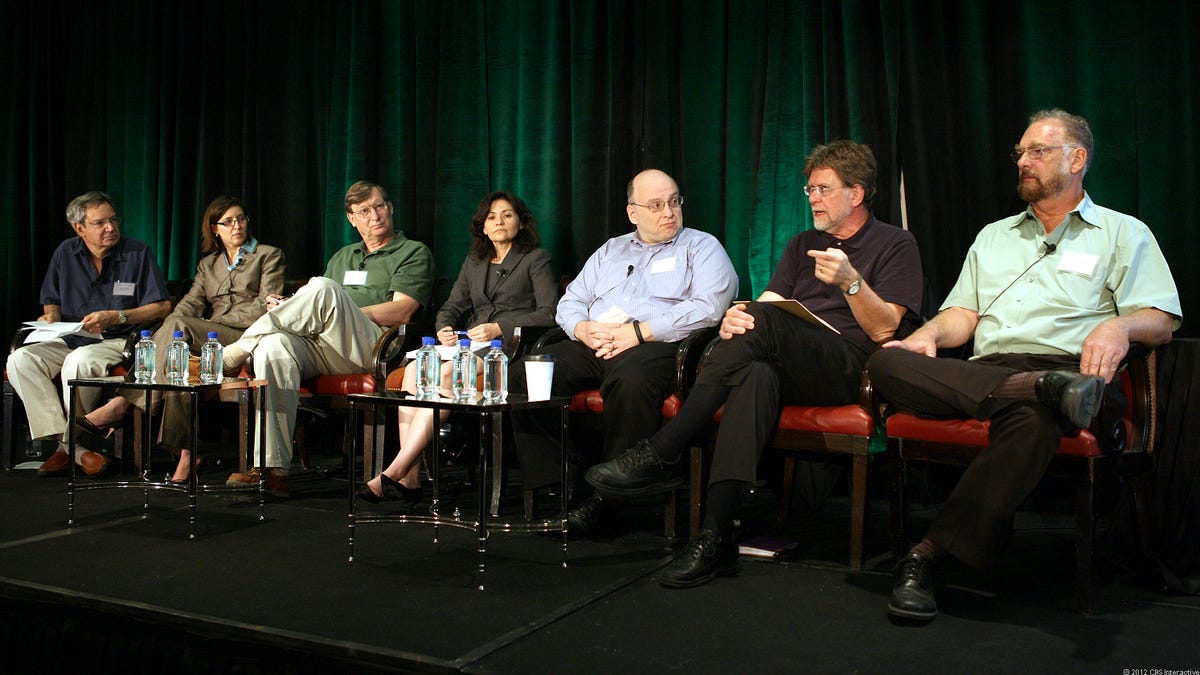 Why You Can Trust CNET
Why You Can Trust CNET Ex-FTC chief: Google could beat an 'unfair competition' suit
Former Federal Trade Commission chairman says the last time the agency won an unfair competition lawsuit was in 1968, and that's "not for want of trying, either."

ASPEN, Colo.--The former chairman of the Federal Trade Commission predicts that an unfair competition lawsuit against Google would be an uphill battle for his former agency.
But William Kovacic, who left the commission last fall and is now a law professor at George Washington University, said here yesterday that his former agency might well try it anyway.
"If I were Mount Google or Mount Apple, I'd be really worried about being scaled today," Kovacic said during a panel discussion on antitrust at a Technology Policy Institute conference. Government attorneys get "extra credit for big cases," he said.
Jon Leibowitz, the current FTC chairman, was asked by Global Competition Review last year about whether his agency was "investigating the online search market." Leibowitz's reply: "What I can say is that one of the commission's priorities is to find a pure Section Five case under unfair methods of competition. Everyone acknowledges that Congress gave us much more jurisdiction than just antitrust."
Kovacic, the co-author of a casebook on antitrust law, said yesterday that a Section Five case would be risky for the FTC:
The last time the FTC prevailed in the federal courts in a standalone Section Five case was 1968. That's a while ago. Not for want of trying, either. And one of the crippling limitations has been the (FTC's) failure to define in a meaningful way what the key operative criteria of that standard are. And as I read the jurisprudence, in case after case, the courts have said, "I might be with you on this one. But tell me how far it goes. Are we going to the moon? Are we going to the end of the solar system? Is it the universe and all it contains? I'd like to have some idea of what the boundaries are." In its 100 year history, the FTC has never defined in a policy statement just what those are... It's a long time since this commission has persuaded a federal court that that is a sustainable theory of liability.
Section Five of the Federal Trade Commission Act broadly prohibits "unfair methods of competition," which the commission believes gives it additional authority beyond the Sherman Act. (In other words, Section Five would let the FTC win cases that would be unsuccessful if brought under the Sherman Act, which has been interpreted as requiring rigorous proof that consumers actually were harmed.)
Kovacic said that federal antitrust enforcers -- the Justice Department and FTC divvy up that responsibility -- now focus on the number of lawsuits they file, especially ones targeting large companies.
"Accomplishment ought to be measured not just by litigation activity," Kovacic said during a conference here organized by the Technology Policy Institute. He added that rather than Section Five authority, "what's more important is how conventional Sherman Act doctrine is interpreted."
Susan Athey, an economist who's a visiting researcher at Microsoft Research New England, said during the panel discussion that Google could have done far more to promote competition in online advertising.
"When you have a dominant position it's very very tempting to put some friction in the gears," Athey said. "That's where antitrust can be very effective."
Hal Varian, Google's chief economist and a panel member, said that it's easy for users to choose to use a different search engine or other Web services.
"Switching costs are very, very low," he said. "So how can you have any kind of durable monopoly power?"
It's been publicly reported that the FTC is investigating Google for possible antitrust violations, including hiring a former Justice Department prosecutor, though the scope of the probe or the possible allegations are unclear.
Apple is enmeshed in an antitrust lawsuit with the Justice Department over alleged e-book price fixing.
Disclosure: McCullagh is married to a Google employee

